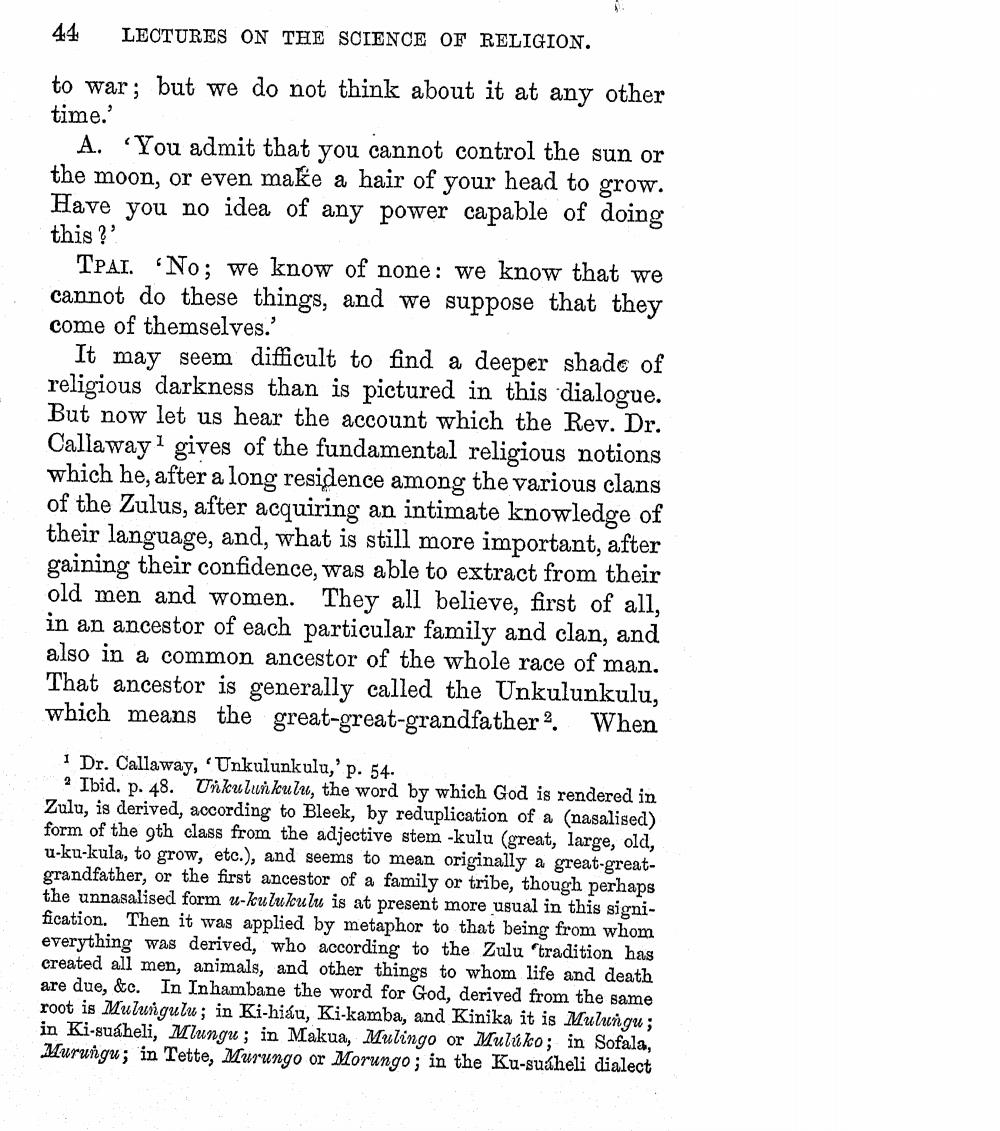________________
44 LECTURES ON THE SCIENCE OF RELIGION. to war; but we do not think about it at any other time.'
A. You admit that you cannot control the sun or the moon, or even make a hair of your head to grow. Have you no idea of any power capable of doing this?
TPAI. "No; we know of none: we know that we cannot do these things, and we suppose that they come of themselves.
It may seem difficult to find a deeper shade of religious darkness than is pictured in this dialogue. But now let us hear the account which the Rev. Dr. Callaway1 gives of the fundamental religious notions which he, after a long residence among the various clans of the Zulus, after acquiring an intimate knowledge of their language, and, what is still more important, after gaining their confidence, was able to extract from their old men and women. They all believe, first of all, in an ancestor of each particular family and clan, and also in a common ancestor of the whole race of man. That ancestor is generally called the Unkulunkulu, which means the great-great-grandfather? When
1 Dr. Callaway, 'Unkulunkulu,' p. 54.
? Ibid. p. 48. Unkulunkulu, the word by which God is rendered in Zulu, is derived, according to Bleek, by reduplication of a (nasalised) form of the gth class from the adjective stem -kulu (great, large, old, u-ku-kula, to grow, etc.), and seems to mean originally a great-greatgrandfather, or the first ancestor of a family or tribe, though perhaps the unnasalised form u-ku lukulu is at present more usual in this signification. Then it was applied by metaphor to that being from whom everything was derived, who according to the Zulu 'tradition has created all men, animals, and other things to whom life and death are due, &c. In Inhambane the word for God, derived from the same root is Mulungulu; in Ki-hiáu, Ki-kamba, and Kinika it is Mulungu; in Ki-suaheli, Mlungu; in Makua, Mulingo or Mulúko; in Sofala, Murungu; in Tette, Murungo or Morungo; in the Ku-suaheli dialect




